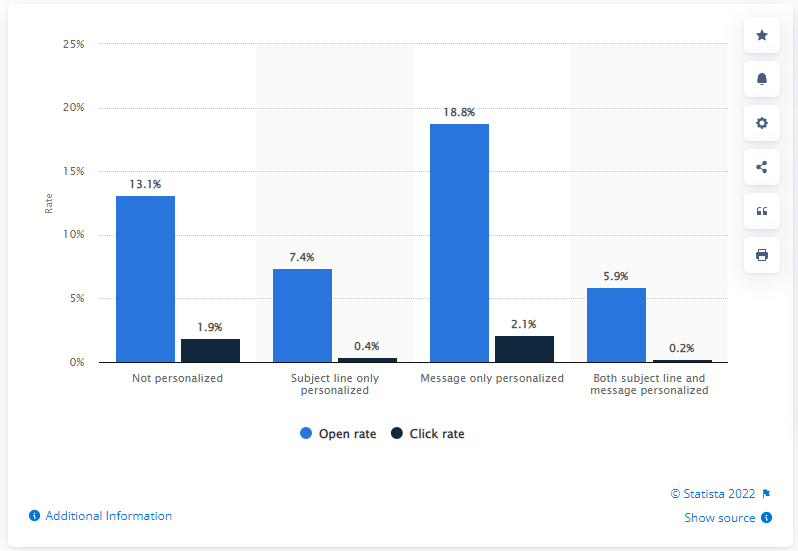It’s supposed to be a game changer.
Apparently, the right CRM system will take your business from zero to hero. If that’s true, why do as many as 70% of CRM projects fail? Are we missing something?
How can a CRM system be necessary for your business if most people using it fail? It actually sounds like a CRM system would be harmful to your business.
Is that true?
The wrong CRM is harmful to your business
What do you mean ‘the wrong CRM?’
Your CRM should be focused on one thing and one thing only. I’m almost certain you know the answer.
Increasing company revenue.
That’s the problem. Many CRM tools are oriented around inspection (rather than sales). Companies purchase a CRM system to create progress reports, forecast sales, and handle a variety of business intelligence tasks.
Did you catch that?
There was nothing in the previous list about closing sales. It wouldn’t matter anyway. These introspective CRM systems tend to be difficult to use; they make it harder for customer-facing employees (sales and support reps) to succeed in their day-to-day activities.
So they’re ignored.
The company gets lots of intel on the inner workings of the company but the company struggles to sell products and services. If this describes CRM in your organization, this is a problem.
The right CRM, is a sales and revenue amplifier. It’s designed to boost growth.
Wait a minute.
What if you don't need a CRM?
Do all businesses need a CRM?
Nope.
Make no mistake, most do. But there are a specific subset of businesses, in specific circumstances who may not need a CRM.
Let’s take a look at a few examples:
- Meechum & Co., a property management company, manages a real estate portfolio of 15,750 units. After relying on third party contractors for several years, they’ve decided to create their own contracting, HVAC, plumbing, and electrical companies. While each of these contractors have their own set of employees and managers, they’re all wholly owned by Meechum and Co. Here’s the most important part; Meechum and Co. is also their only client.
- Allied Powers is a defense contractor for the United States Government. They serve specific branches of the military (e.g., air force, army, space force) but they basically have a single client, the United States Government. They focus their attention on creating very specific and very niche logistical products.
See what I mean?
If you generate a small number of leads or you’re working with a tiny customer list it may not be necessary. Sure, you could use a CRM to work with each of these scenarios but it’s not an absolute necessity. It’s redundant and not at all essential, until you decide it’s time to grow.
Okay then.
Which businesses need a CRM system?
A CRM is essential for 'growth companies'
What’s a growth company?
Investopedia defines a growth company as:
“Any company whose business generates significant positive cash flows or earnings, which increase at significantly faster rates than the overall economy. A growth company tends to have very profitable reinvestment opportunities for its own retained earnings. Thus, it typically pays little to no dividends to stockholders, opting instead to put most or all of its profits back into its expanding business.”
Is this the kind of business your organization is aiming for? If your organization has or wants to achieve any of the following:
- Grow faster than industry averages
- A competitive advantage and strong value proposition
- Increased conversion rates
- Lower per lead costs and a greater return on ad spend
- An A-player sales team with a high closing ratio and exceptional win/loss ratios
- A diverse customer and product base
- Consistent revenue and strong cash flow and a conservative balance sheet
- Leaders of or primarily focused on a core area (i.e., Google focuses on search)
- Management owns shares in the company, ensuring alignment with shareholders
- Your organization is or wants to be recognized as the best or top 10% in your niche
Doesn’t every organization want that?
Most of them do.
If your organization is looking to grow a CRM system isn’t optional, it’s essential.
Why a CRM is essential for your business
Your customers are dealing with information overload. They’re bombarded with advertising, social media, and notifications on a daily basis. See what the role of a CRM is in business today.
The good news?
Your customers feel they’re equipped to deal with information overload. According to Pew Research, 81% of American adults appreciate lots of information and access to it.
Why does that matter?
Because your customers have developed ingenious ways of dealing with information overload. One of those methods?
Personalization.
According to McKinsey, “71 percent of consumers expect companies to deliver personalized interactions. And 76 percent get frustrated when this doesn’t happen. Ratcheting up the pressure on companies, if consumers don’t like the experience they receive, it’s easier than ever for them to choose something different. Three-quarters of consumers switched to a new store, product, or buying method during the pandemic.”
What does this have to do with CRM?
Everything!
Your CRM is how you document the data you need to personalize your customer’s experience. Sure, some of this is done on the front end by marketing but a large portion of this is accomplished via your sales team and your CRM.
Is personalization really that important? Research says it is.
- 66% of customers expect companies to understand their unique needs
- 52% said that they now expect businesses to always offer personalized experiences”
- According to a Capco survey, 72% of users feel that personalization is highly important. Only 8% said that it isn’t. Meanwhile, 20% of respondents were neutral on the matter”
- Millennials are very particular about personalization at 79%. This is followed by Gen Z users (75%) then by Gen X users (74%)
- 86% of those who said personalization is important are willing to provide feedback on their experiences at least once a year (this means online reviews)
What are the benefits of personalization?
Personalized marketing messages are opened, read, and consumed more often. Statista found that emails with a personalized message and a non-personalized subject line have an open rate of 18.8% and a 2.1% click rate.

Additionally, research from Accenture shows 91% of customers will shop with brands that remember them, remember their interests and preferences, and present them with relevant offers.
What does this mean for sales teams?
Customers expect you to do your homework; they expect you to tailor your messages and offers around their desires, goals, expectations, fears, and frustrations.
How does CRM factor into this?
CRM is a centralized system that documents the customer intel you’ve gathered. This is data you can use to personalize customer experiences. This data can be used by your sales team, marketing, customer service, management, executives, and even accounting.
That’s right.
McKinsey found that “research found that companies that excel at personalization generate 40 percent more revenue from those activities than average players.”
CRM is the foundation.
It’s the system you need to collect the learning, the knowledge you’ve collected from your customers.
Is a CRM system necessary for growth?
Absolutely. As we’ve seen, personalization is a game changer. Customers expect you to have a deep and intimate understanding of their needs.
Your CRM is a kind of warehouse for your customer preferences.
The wrong CRM system is oriented around inspection (rather than sales). Companies purchase these kinds of CRM systems to create progress reports, forecast sales, and handle a variety of business intelligence tasks.
This approach is doomed to failure.
If your organization needs an efficient way to maximize sales team performance, boost productivity, and increase sales revenue, choose a sales CRM.
Verify that your CRM system boosts sales revenue. You’ll find you have the tools you need to become your customer’s hero, no failure necessary.



